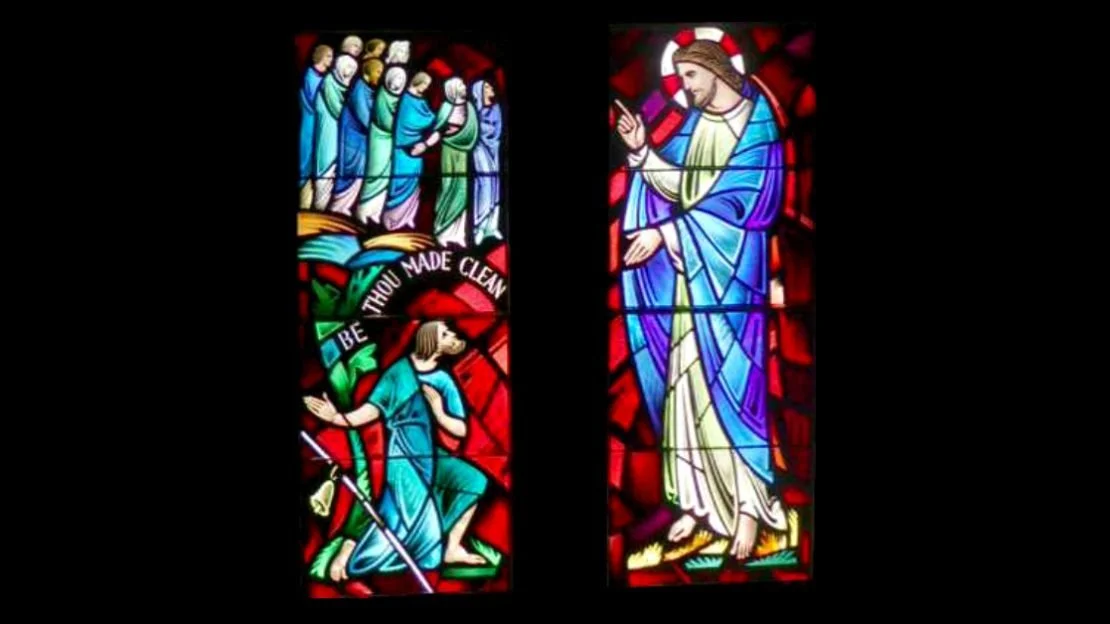i don’t want to have an attitude of gratitude
a sermon preached at St. Martin in-the-Fields, Edwardsville, KS on October 12, 2025
Photo by Gabrielle Henderson on Unsplash
Gratitude is trendy.
I did a Google search for the phrase “gratitude practice,” and came up with literally millions of results. There was an article from Forbes: 8 Ways to have more Gratitude every Day; a list of 40 simple ways to practice gratitude from a website called lifehack dot com. My search for “benefits of gratitude” was similarly overwhelming - from Psychology Today to Time magazine, the evidence was everywhere - gratitude improves your physical health, makes other people like you more, reduces materialism, makes you happier.
There were over 20 pages of results when I searched Amazon for books about gratitude - from The One Minute Gratitude Journal, the 90 day gratitude journal - the list seemed never ending. Within this culture obsessed with gratitude, I must say that I was a bit hesitant about the gospel story today. It is a miraculous story of Jesus’s healing power, but it seems that there is a larger message here about gratitude. Out of the ten people who experienced healing through their interaction with Jesus, only one turned around and said thank you. It would be easy enough to take this as a moral tale, a story in which we ought to hear the warning - Jesus wants us to be grateful.
But honestly, I’m tired of reading articles that tell me if I just write down three things that I’m grateful for each day, I’ll be happier, smarter, and more successful. I’m resistant to the now-overused command to have an “attitude of gratitude.” I know that there is something deeply spiritual about practicing gratitude, but our cultural obsession with gratitude seems to lack any significant depth. When we use gratitude as a tool to make us happier, as a project to improve our lives, we’re missing the point. And if we read this story from the gospel about Jesus and the ten lepers as simply a command to be more grateful, I think we’re missing the point there, too.
“When we use gratitude as a tool to make us happier, as a project to improve our lives, we’re missing the point. ”
Think about this story again. Jesus is walking along the border of two countries, a border that was rife with political unrest. The citizens of these two countries saw each other as enemies. But these ten men, some from Samaria, some from Judea - all with a contagious skin disease - have formed a community together, despite their different origins. Since they have been cast out from their respective communities, they have bonded, formed a new community across cultural lines. Their suffering has erased lines of prejudice in a radical way.
The religious codes at the time stated that if a person with leprosy saw someone walking near them, they were to shout - Unclean! Unclean! It was their duty to warn the other to stay far away from them. But these lepers - for some reason they don’t shout out Unclean! They see from afar that it’s Jesus, the healer - so they shout - Jesus, Master! Have mercy on us!
Now in most other stories of Jesus, he heals people by touching them. But for some reason, in this case, he does the opposite. He sends them away saying, Go, present yourselves to the priests. Presumably, he knows they will be healed when they arrive, as they wouldn’t be allowed to present themselves in the synagogue with their skin disease. But one - just one from the group - looks down at his skin and realizes - the impossible has happened. His incurable disease has been cured, and seemingly nothing happened to make it so. There was no special potion, no magic words, not even a healing touch laid on his wounds. All of a sudden, he looks down, and he is changed.
This one, this one from Samaria, turned around and threw himself at Jesus' feet. He said - thank you! and, praise God! You see, he knew what this meant for him - he could go home now. He didn’t have to wander the no-man’s-land anymore, he wouldn’t have to warn people that he was “unclean” every time he saw another human. He could be touched again. This man’s gratitude was profound, and came from a deep sense of the loss he had suffered. He realized that the true miracle was not that he had been cured from his disease, but that he had been given his life back.
This is not so much a story about nine ungrateful people, warning us not to be like them. This is a story of transformation that reminds us that when we allow ourselves to be vulnerable and feel the desolation of our lives, gratitude will be an authentic reaction to our healing. The Samaritan man expressed gratitude because he could do nothing else. It was the most authentic thing he could do in that moment. And in expressing his authentic self, in feeling his deep gratitude, he was brought closer to Jesus.
In our society, gratitude is presented as a simple solution to all our problems. It’s as easy as buying this book, or writing in this journal, we’re told! In reality, gratitude is simple, but that doesn’t make it easy. In fact, because it’s so simple, it’s one of the hardest things to do.
The story from 2 Kings illuminates this truth. Naaman was an important man, a commander of an army, and yet he too had leprosy. He embodied what we all know - that both the powerful and the poor suffer, that illness does not choose based on your status in society. Just like the ten lepers who encounter Jesus, Naaman, too, is seeking healing. He ends up at the feet of another Jewish prophet, Elisha, who tells him he will be healed if he simply washes himself in the Jordan river seven times.
I love that Naaman is offended by this solution. Excuse me? It can’t possibly be that simple. I’m very important! Don’t you have any magic words to say while you wave a hand over my wounds? Isn’t there a less muddy river for me? How dare you think my woundedness could be healed so simply. I relate to Naaman. I also think that I’m too important, and that my particular woundedness is much too complicated to be solved by a simple solution. The leper in Jesus’ time seems similarly aghast at the simplicity of the answer.
But the truth is, the answer is so simple, that it’s almost impossible for us to grasp. The healing we seek is right in front of us. The re-connection we long for is not far off. The healing of our hearts is as simple as calling out to God, as simple (and as difficult) as abiding in our connection to God. We have as little control over it as Naaman had over the flow of the river; as we do over the waters of our own baptism.
Gratitude has become one ingredient in the magic solution that is sold to us by society. If we just were more grateful, if we just drank 8 glasses of water each day, if we just exercised enough, if we just...fill in the blank. Everything would be fixed. But the truth is much simpler, and much truer than that. We all know that no matter how diligent we are, we still are sick, we still are wounded, we still suffer. But if we, like Naaman, like the Samaritan, if we can get in touch with our own woundedness and cry out to God - gratitude will be our authentic response. Gratitude isn’t a quick fix to the problems of our lives.
Having an attitude of gratitude may sound nice, but it’s an empty phrase as long as we use it to improve our lives. Gratitude comes from the depths of us, from our most wounded places, when God speaks healing words to us: You are loved. You are loved. You are loved.

